-
The U.S. hypocrisy about Israel’s nuclear weapons must stop
An extraordinary three-part series on Israeli television, The Atom and Me, lays out how the country got its nuclear weapons.
-
Remembering nuclear victims 71 years after the Castle Bravo test
Pushing for the Abolition of Nuclear Weapons and War.
-
Trump issues sanctions on Iran, threatens to “obliterate” it if he’s killed
Trump has signed an executive order to exert pressure on Iran while also trying to obtain a nuclear deal.
-
In major expansion of U.S. nuclear buildup, Trump orders construction of nationwide missile defense system
The executive order “directs implementation of a next-generation missile defense shield for the United States against ballistic, hypersonic, advanced cruise missile, and other next-generation aerial attacks.”
-
Thermonuclear Crack
Isn’t it high time we “augment” our nuclear force “posture”?
-
Israeli Nuclear Weapons: Risks, Consequences and Disarmament
Despite the policy of ambiguity around Israeli nuclear weapons, it is clear that Israel’s nuclear arsenal poses a significant risk for humanitarian catastrophe in the Middle East and it should take urgent steps towards nuclear disarmament.
-
Scott Ritter: Life, preempted
Policymakers in both the U.S. and Europe are undertaking increasingly brazen acts of escalation in Ukraine designed to bring Russia to the breaking point.
-
How to make a ‘war reserve’ nuclear bomb
The dark art of crafting nuclear ‘pits’ was almost lost. Now it’s ramped up into a multibillion dollar industry.
-
The Samson Option: Israel’s plan to nuke its opponents
What’s ambiguous about Israel’s nuclear policy is not whether the country has these weapons, but how it plans to use them.
-
Trident missile failure exposes folly of nuclear weapons
Britain’s nuclear arsenal has failed two tests in a row. Why must we still pay for these extortionate weapons of mass destruction?
-
Atomic bombing of Japan was not necessary to end WWII. U.S. gov’t documents admit it
U.S. government documents admit the atomic bombing of Hiroshima and Nagasaki was not necessary to end WWII. Japan was on the verge of surrendering. The nuclear attack was the first strike in Washington’s Cold War on the Soviet Union.
-
UN votes 152 to 5 telling Israel to get rid of its nuclear weapons
The United Nations General Assembly voted overwhelmingly, 152 to 5, to tell the Israeli apartheid regime to get rid of its nuclear weapons, which are illegal under international law.
-
A failure to review America’s nuclear posture
President Joe Biden has passed on his best chance to operationalize his stated goal of reducing the role in US security policy of America’s more than 5,400 nuclear weapons with the public release on October 27 of the Nuclear Posture Review (NPR).
-
Is that a chilling echo of Dr. Strangelove we are hearing from Biden’s nominee to oversee America’s nuclear weapons arsenal?
Stanley Kubrick’s classic 1964 film Dr. Strangelove featured an unhinged Air Force General named Jack D. Ripper, who orders a nuclear strike on the Soviet Union after he becomes convinced that the Soviets were polluting the U.S. water supply.
-
Ukraine & Nukes
After a New York Times reporter grossly distorted what Putin and Zelensky have said and done about nuclear weapons, Steven Starr corrects the record and deplores Western media, in general, for misinforming and leading the entire world in a dangerous direction.
-
Security U.S. fears of China nuclear expansion… déjà vu of Soviet missile gap hype
Media reports from the U.S. this week–regurgitated by the European press–highlighted concerns that China is embarking on a massive scale-up of underground silos for launching nuclear weapons.
-
Pretending not to see brazen lies: the rule of law and nuclear madness
The latest brazen lie is the “rule of law” upheld by U.S. President Joe Biden at the G7 and NATO summits, especially lies about lawlessness surrounding nuclear weapons.
-
Time to end the silence on Israel’s nuclear weapons
While Israel’s large arsenal of nuclear weapons is exempt from any discussion, its government drives the suspicion of Iran’s nuclear energy program, writes Mehrnaz Shahabi.
-
If Israel accuses Iran of doing something, Israel is likely already doing it
Israel has accused Iran of doing many nefarious things. But the historical record shows that whatever Israel accuses Iran of, it is likely that Israel is already doing it.
-
What’s behind the Biden Administration’s new $100 billion nuclear missile system?
Massive popular pressure—like that organized by the 1980s nuclear freeze movement—is needed to stop more waste, fraud and abuse.


![Between the Marshall Islands and Fukushima [by Prof. Robert Jacobs] | DiaNuke.org](https://mronline.org/wp-content/uploads/2025/03/Marshall-Islands-2408979132-200x200.jpeg)


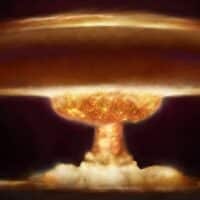

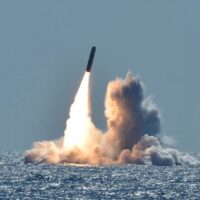

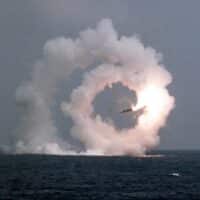
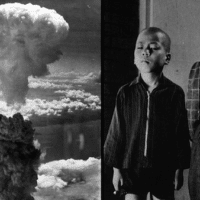
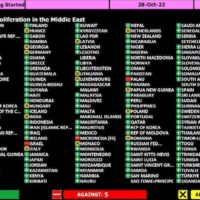
![Anthony J. Cotton [Source: airandspaceforces.com]; left, Peter Sellers as Dr. Strangelove [Source: commonedge.org ] [Collage courtesy of Steve Brown.]](https://mronline.org/wp-content/uploads/2022/09/Screen-Shot-2022-09-27-at-24337-PM-200x200.png)
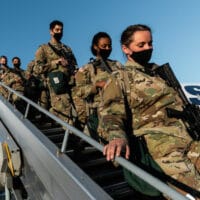
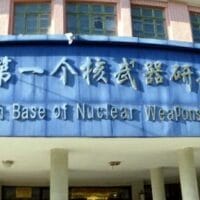
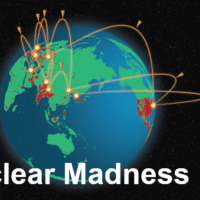

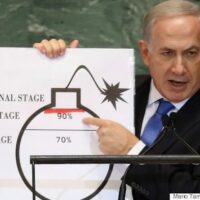
![The new Ground-Based Strategic Deterrent (GBSD) nuclear missile systems will cost tax payers $100 Billion. [Source: thebulletin.org]](https://mronline.org/wp-content/uploads/2021/03/missiles-200x200.png)